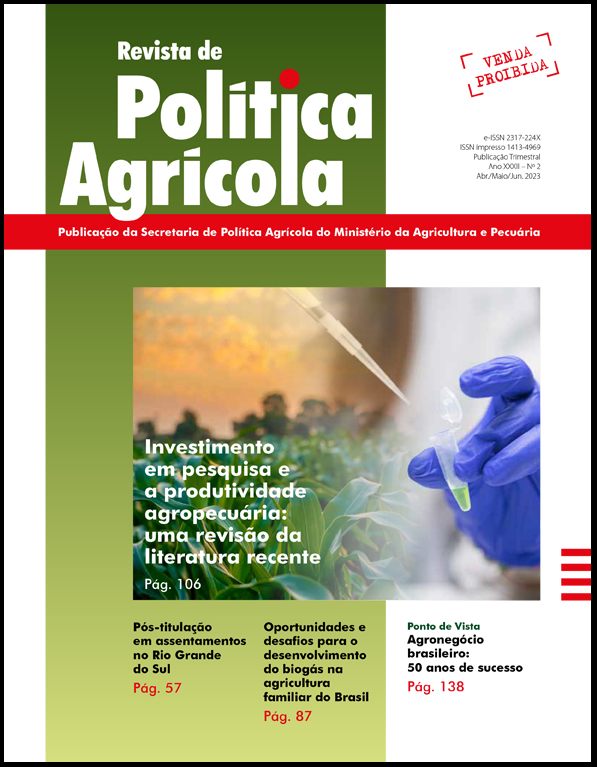Opportunities and challenges for biogas development in family farming in Brazil
Keywords:
Agroenergy, SWOT analysis, sustainable development.Abstract
The importance of family farming in Brazil is widely acknowledged, as it reaches about 4 million establishments. However, waste management and its use for energy production are still rare, especially in the livestock activity, which is of great impact, causing river and groundwater pollution, also contributing to greenhouse gas emissions, particularly from methane. One of the alternatives to waste management in the livestock activity is the use of anaerobic biodigestion, whose main products are biogas and biofertilizers. This process is performed with the use of the environmental sanitation technology from the management of the residual biomass (animal manure) in biodigesters. The objective of this article was to present the opportunities and challenges for the development of biogas systems for family farming establishments in Brazil. We choose to focus on the south region because of the livestock activity concentration there, and the tradition of partnership and cooperativism in the region. The methodology is based on a SWOT analysis and data from the Brazilian agriculture and livestock census of 2017 (Censo Agropecuário de 2017). Results show as the main force the huge potential of biogas generation from the southern family farming establishments. The main weakness is the little exploited potential associated with the challenges of a regulatory agenda. The “biodigestor sertanejo” technology is a highlighted opportunity, together with some actions of public policies. Among the threats stand out the government budgetary problems and interest rate increases.Downloads
Published
2023-08-22
How to Cite
Mathias, J. F. C. M., & Silva, S. S. (2023). Opportunities and challenges for biogas development in family farming in Brazil. Revista De Política Agrícola, 32(2), 87. Retrieved from https://rpa.sede.embrapa.br/RPA/article/view/1865
Issue
Section
Artigos Científicos


